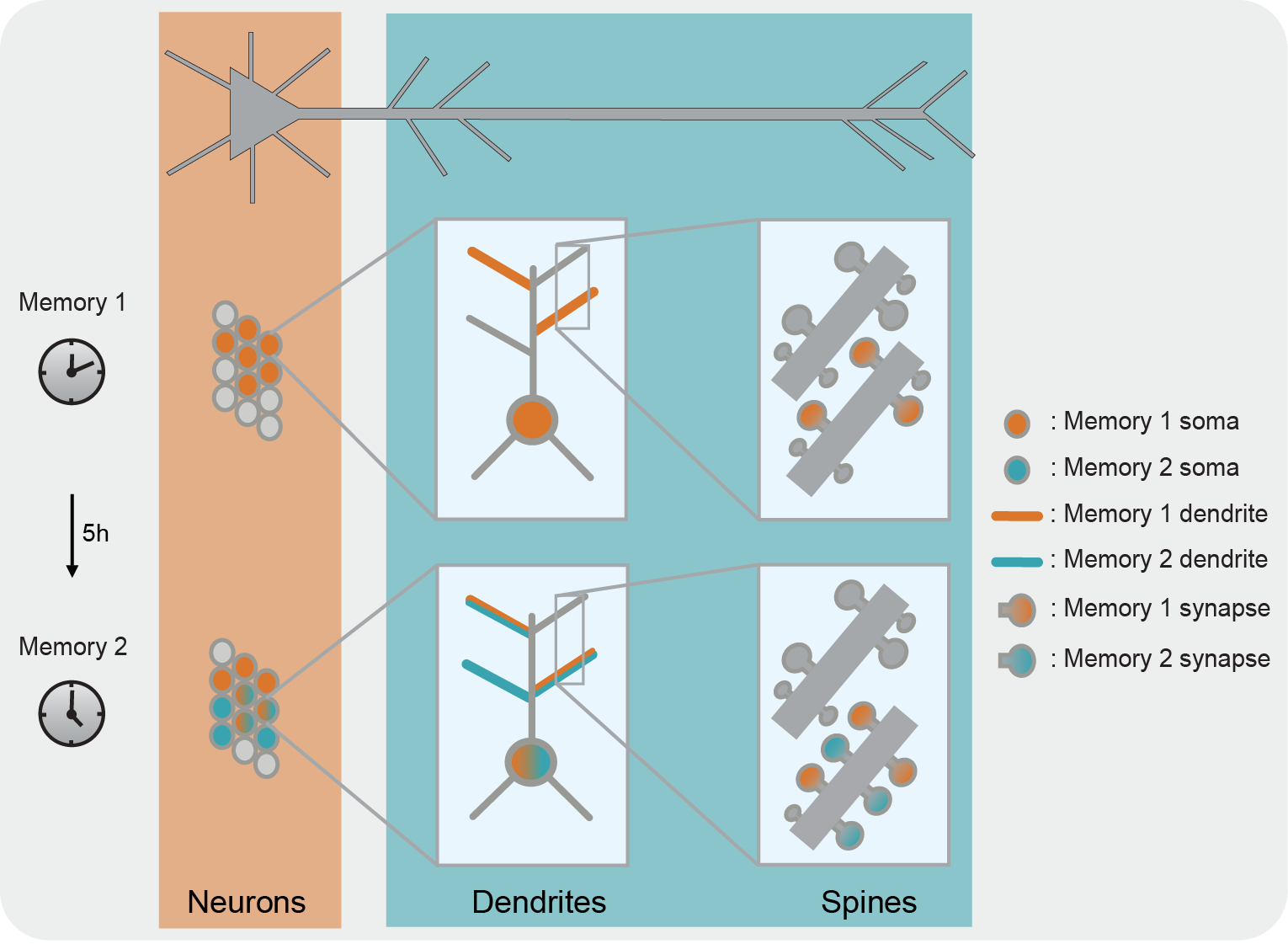Abstract:
Events occurring close in time are often linked in memory, providing an episodic timeline and a framework for those memories. Recent studies suggest that memories acquired close in time are encoded by overlapping neuronal ensembles, and that this overlap is necessary for memory linking. Transient increases in neuronal excitability drive this ensemble overlap, but whether dendritic plasticity plays a role in linking memories is unknown. Here, we show that contextual memory linking is not only dependent on ensemble overlap in the retrosplenial cortex (RSC), but also on RSC branch-specific dendritic allocation mechanisms. We used miniature microscopes and activity-dependent labeling to demonstrate that neuronal ensemble overlap within the RSC underlies the linking of two contextual memories. Using longitudinal two-photon imaging of RSC dendrites, we show that the same dendritic segments are preferentially activated by two linked (but not independent) contextual memories, and that spine clusters added after each of two linked (but not independent) contextual memories are allocated to the same dendritic segments. Importantly, with a novel optogenetic tool selectively targeted to activated dendritic segments following learning, we show that reactivation of dendrites tagged during the first context exploration is sufficient to link two contextual memories. These results demonstrate a causal role for dendritic mechanisms in memory linking and reveal a novel set of rules that govern how linked, and independent memories are allocated to dendritic compartments.

Biography:
Megha Sehgal is a postdoctoral scholar in Alcino Silva's lab at UCLA where she has been working on localized dendritic plasticity and its role in learning and memory. Megha finished her undergraduate degree from Delhi University and then went on to do a short research stint at National Center for Biological Sciences, India where she first became interested in Neuroscience. She then joined University of Wisconsin-Milwaukee as a grad student in Jim Moyer’s lab where she studied learning and aging-related changes in fear learning circuit. Relevant to her talk today she demonstrated that fear learning changes intrinsic excitability in a small subset of neurons in amygdala. To explore the role of intrinsic plasticity further she joined Alcino Silva’a lab as postdoc. She will be talking to her about her postdoctoral work at SWC but in addition to this work Megha has been very involved in open-source UCLA miniscope development.
